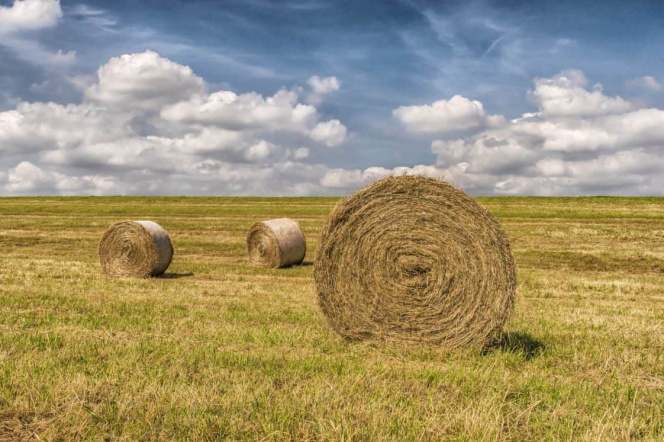Date added: 2021-09-02
Cosmetics based on carrot pomace extracts. This is how biomass can be used

Gdańsk University of Technology was one of the participants in the project. The project manager on behalf of the Faculty of Mechanical Engineering and Ship Technology was prof. Dariusz Mikielewicz from the Institute of Energy, vice-rector for development and organization.
– The aim of the project is to include hitherto unused and new biomass resources, in particular waste from the food processing chain, such as the production of cereals (straw), sugar, vegetables, wood and the processing industry - noted Prof. Dariusz Mikielewicz. - These products can be processed into a range of food or non-food products, improving the use of biomass that would otherwise be irretrievably lost - he added.
Materials and their components derived from these value chains can be transformed into a wide range of innovative food and non-food products. The BioBIGG project identified, mapped and prepared the most innovative and economically attractive pilot opportunities and investments seen from a cross-border perspective.
Supporting small and medium-sized enterprises
BioBIGG also created activities supporting small and medium-sized enterprises to meet their needs. As professor Mikielewicz emphasized, on the one hand, there is an increasing interest in bioeconomics and products obtained from biomass conversion. On the other hand, many of the enterprises lack knowledge about bioeconomics and specific solutions, and many of them do not have innovative abilities.
– The BioBIGG project was to mobilize the innovative potential related to unused biological resources in agro-industrial chains in the South Baltic area. The project aimed at increasing the innovative capacity of small and medium-sized enterprises through the cross-border transfer of knowledge, advisory activities and the preparation of pilot projects and investments – said prof. Dariusz Mikielewicz.
Bioeconomics and small and medium-sized enterprises in other countries
Let us remind that bioeconomics is the production and use of biological resources, innovative biological processes and rules ensuring sustainable production, as well as industrial and energy products. Thus, bioeconomics can be described as the next wave of economic development shaping the society after the age of fossil fuels, in which new materials and products from biomass are introduced. Against this background, bioeconomics and its biological resources provide a unique platform for innovation and business opportunities. In many countries, small and medium-sized enterprises are the key institutions influencing innovation on the basis of biomass. However, it is necessary to direct enterprises and other entities to participate in the development of bioeconomy in the South Baltic area.
Study visits
When it comes to the South Baltic regions, there are many similarities. All project partners have a large share of agriculture, with food production and chemical plants in urban areas and agglomerations.
During the BioBIGG project, the team carried out a series of study visits to companies processing broadly understood biomass, such as: Warmia Fruit and Vegetable Processing Plants in Kwidzyn; Kashubian Brewery in Bytów; Mazurian Mushroom Plant Fedor in Użranki; Sugar factory in Malbork, Sawmill Sylvadrewno in Wieluń or Biogas plant in Mełno.
The results of the project are studies on the possible use of biomass, previously perceived as waste.
The topics developed by the group from the Institute of Energy include:
- Low-alcohol nutritional drink with high fiber and vegetable protein content: a new way of using spent grain by small local breweries
- Production of natural cosmetics based on carrot pomace extracts
- A method for the development of the after mushroom substrate
- Production of keratin hydrolyzate from poultry feathers
- Production of bioplastics from potato waste
- Analysis of the possibilities of developing coastal salt meadows in terms of their innovative implementation resulting in the development of bioeconomy in Poland
The latest knowledge in the field of biomass processing has been exchanged between regions. In addition, product innovation proposals as well as concrete product, process and business innovation opportunities proposals have been disseminated to companies and other subjects.
Based on the experience gained from the visited enterprises and the information obtained during interviews with bioeconomy stakeholders, a scientific article was written in the Sustainability journal of the MDPI publishing house, included in the Journal Citation Reports (JCR) list.
Project manager:
Roskilde University (RUC) - Denmark
Project partners:
RISE Research institutes of Sweden
Gdańsk University of Technology (Gdańsk Tech)
Agency for Renewable Resources (FNR)
University of Greifswald (UG)
Swedish University of Agricultural Sciences (SLU)
Associated Partners of the Project:
Zealand Region - Denmark
The Danish Innovation Network for Biomass - Denmark
Schoeller Plast - Denmark
WITENO GmbH (Science and Technology Park North°East°) - Germany
Enzymicals PLC - Germany Pomeranian Voivodeship - Poland
Miastko Economy Association - Poland
Baltic Eco-Energy Cluster - Poland
Skane Region - Sweden
Sustainable Business HUB - Sweden
GAIA BioMaterials AB - Sweden



